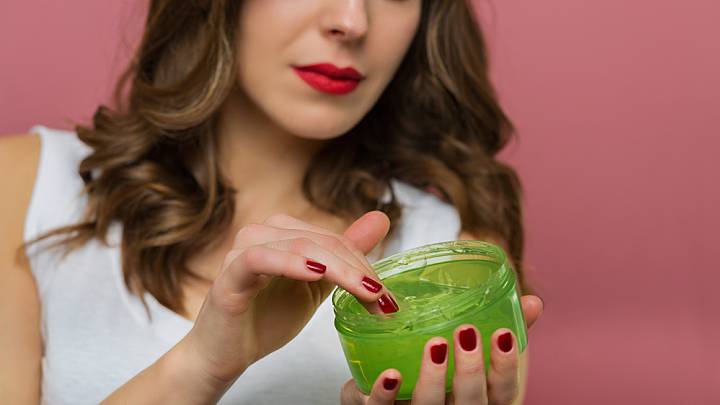Natural and alternative treatments for eczema

Medically reviewed by
Dr Kathryn BasfordLast reviewed: 11 Apr 2019
Home remedies for eczema

Eczema is a common skin condition that affects people of all ages across the world. It’s characterised by itchy skin, which can be sore and get inflamed. When eczema flare-ups happen, they can be managed using emollients (moisturisers) like Aveeno or Cetraben and sometimes with steroid creams too.
Many people also look for home remedies for eczema to treat outbreaks and help them improve their symptoms. We’ve summed up the science behind a few popular home remedies so you can see for yourself if you think they’re worth trying.
Oats
Oats are one home remedies for eczema, especially on legs but other body parts too. Oats contain beneficial compounds called avenanthramides which can help calm down the inflammation of the skin caused by eczema or itching. The starch contained in oats can also help to hold moisture in the skin (like a moisturiser) which can improve eczema symptoms.
Some people use oat-based lotions and others use oats in their bath to help them to treat eczema. There are also products that contain a form of the avenanthramides found in oats, like Aveeno® Lotion. This lotion is clinically proven to soothe the skin, enhance and restore the skin’s natural protective function, and prevent dry skin from coming back.
Coconut oil
Coconut oil is another popular home remedy for eczema. Virgin coconut oil is the least processed form of the oil, and it’s known the most benefit. Processing coconut oil tends to reduce the positive effects.
There are only a few clinical studies on the use of coconut oil for eczema but they do show it can reduce how severe your eczema is. In clinical studies, coconut oil has been found to be more effective than other ‘standard’ moisturisers that just contain mineral oils. Research also shows that using coconut oil regularly may lower the number of Staphylococcus aureus bacteria on the skin, and high numbers of these bacteria are link to more eczema outbreaks.
Applying coconut oil to the skin could play a role in helping you to manage your eczema symptoms.
Honey
Honey is a well-known, natural treatment for different skin conditions, as well as other general health conditions. In fact, after evaluating the evidence, the National Institutes of Clinical Excellence now recommends honey as the first option in treating a minor cough.
Honey is a ‘humectant’, which means that it draws moisture to the surface of the skin. Many people who have eczema also suffer from dry skin, which can cause itchiness that makes eczema symptoms worse. So, honey helps improve moisture levels at the surface of the skin, reduce dry skin, and improve eczema in some people.
Honey also has some natural, antibacterial effects, which can improve skin health and for preventing skin infections. More recent research has been done on a particular type of honey, known as ‘manuka honey’. Research shows positive results in a small sample of patients and manuka honey is included as an ingredient in many moisturisers.
Aloe Vera gel
Another possible natural remedy for eczema is Aloe Vera gel. Aloe Vera gel comes from the inner leaves of the Aloe Vera plant and has been used for centuries to help with a variety of skin conditions.
Aloe Vera gel is a soothing thick liquid substance which can be applied directly to the skin. It can help to soothe the heat and itching of eczema due to its coolness and thickness. The plant also has other natural effects, like antibacterial action and helping wounds heal faster.
Studies of using Aloe Vera gel to treat eczema don’t always show improvements. This could be because the amounts of Aloe Vera contained in gels if different for different moisturisers, and pre-clinical evidence suggests it’s best to use fresh Aloe Vera because some of the benefits fade over time after the liquid is removed from the plant.
Naturally managing triggers
Eczema can’t be cured but with the right care, symptoms can usually be managed well. Being aware of what irritates your skin and the triggers that cause eczema flare ups is useful in managing your eczema symptoms.
Some common irritants and allergens that may lead to eczema flare-ups in some people include:
- Dust contains many allergens, like dust mites and pet dander, which may cause eczema symptoms to flare up or get worse. Avoiding carpets and regularly hoovering with an HEPA filter may help with managing dust
- Stress is also a well-known trigger for eczema, because of its effects on the immune system. Managing stress levels can help to reduce the number of flare ups you get
- Soaps, detergents, and other chemicals can play a role in eczema flare-ups. For example, some bar soaps can be dry your skin out and heavily perfumed personal-care products may cause irritation to the skin
- Exercise can also lead to flare ups. For example, sweat can be an irritant to your skin if not washed off over a long period of time. So it’s recommended you shower right away after exercise.
- Chlorine from swimming pools may cause dryness to the skin and make eczema flare ups more likely. So, moisturising the skin well before and after swimming can help to reduce the chance of flare-ups
- Smoking: studies have shown you are more likely to have eczema if you smoke, most likely because smoking has harmful effects on your immune system. So, quitting smoking may be helpful for eczema, as well as having a whole host of other health benefits too
Can diet or supplements help with eczema?
- Vitamin D. When it comes to supplements for eczema, researchers have looked into the use of vitamin D. Studies have shown that vitamin D plays a role in avoiding eczema flare ups, as well as treating them. People with lower levels of vitamin D tend to be more likely to have eczema, and they tend to get worse symptoms. Clinical studies show that using vitamin D supplements can effectively treat eczema
- Probiotics. Studies have also looked at the role that probiotics (friendly bacteria for your gut) have in relation to eczema. A lot of this research has focused on probiotics for children and pregnant women, and the results are mixed. This could be because of the different types and strains of probiotics used
- Diet. In terms of food in-take, a relatively recent study found that a traditional diet was associated with lower risk of eczema, but the relation between diet and eczema is not straight forward. Studies also suggest avoiding foods you’re allergic or sensitive to may be helpful in managing flare-ups
Ordering eczema treatment without a face-to-face appointment
If you’d like to order effective eczema treatment without having to see your GP or pharmacist first, you can access a range of moisturisers and steroid creams to treat your eczema online with ZAVA. We have information about available treatment options for eczema and other common skin conditions, like psoriasis, rosacea, and acne.

from £29.99

No results found.
Please check your spelling or try another treatment name.

Dr Kathryn Basford is a qualified GP who works as a GP in London, as well as with ZAVA. She graduated from the University of Manchester and completed her GP training through Whipps Cross Hospital in London.
Meet our doctorsLast reviewed: 11 Apr 2019
-
Berry, J. (2019). 12 best natural remedies for eczema. Medical News Today. [online] Available at: https://www.medicalnewstoday.com/articles/324228 [accessed 29 March 2019].
-
Goddard, A. and Lio, P. (2015). Alternative, complementary, and forgotten remedies for atopic dermatitis. Evidence-Based Complementary and Alternative Medicine: 1-10. [online] Available at: https://pubmed.ncbi.nlm.nih.gov/26257817/. [accessed 13th May 2021]
-
Hon, K. et al (2018). Emollient treatment of atopic dermatitis: latest evidence and clinical considerations. Drugs in Context: 7: 1-14. [online] Available at: https://pubmed.ncbi.nlm.nih.gov/29692852/. [accessed 13th May 2021]
-
Kantor, R. et al (2016). LB768 Association of atopic dermatitis with active and passive smoking: A systematic review and meta-analysis. Journal of Investigative Dermatology; 136(8): p.B4. [online] Available at: https://pubmed.ncbi.nlm.nih.gov/27542586/. [accessed 13th May 2021]
-
Lind, S. (2018). Recommend honey and herbal remedies as first-line for acute cough, says NICE | Nursing in Practice. Nursinginpractice.com. [online] Available at: https://www.nursinginpractice.com/latest-news/recommend-honey-and-herbal-remedies-as-first-line-for-acute-cough-says-nice/ [accessed 29 March 2019].








